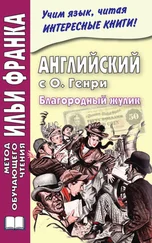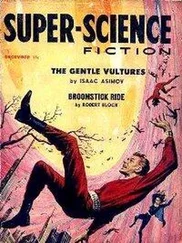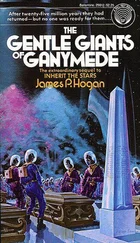O. Henry - The Gentle Grafter
Здесь есть возможность читать онлайн «O. Henry - The Gentle Grafter» весь текст электронной книги совершенно бесплатно (целиком полную версию без сокращений). В некоторых случаях можно слушать аудио, скачать через торрент в формате fb2 и присутствует краткое содержание. Год выпуска: 1919, Жанр: Классическая проза, Юмористическая проза, на английском языке. Описание произведения, (предисловие) а так же отзывы посетителей доступны на портале библиотеки ЛибКат.
- Название:The Gentle Grafter
- Автор:
- Жанр:
- Год:1919
- ISBN:нет данных
- Рейтинг книги:5 / 5. Голосов: 1
-
Избранное:Добавить в избранное
- Отзывы:
-
Ваша оценка:
- 100
- 1
- 2
- 3
- 4
- 5
The Gentle Grafter: краткое содержание, описание и аннотация
Предлагаем к чтению аннотацию, описание, краткое содержание или предисловие (зависит от того, что написал сам автор книги «The Gentle Grafter»). Если вы не нашли необходимую информацию о книге — напишите в комментариях, мы постараемся отыскать её.
The Gentle Grafter — читать онлайн бесплатно полную книгу (весь текст) целиком
Ниже представлен текст книги, разбитый по страницам. Система сохранения места последней прочитанной страницы, позволяет с удобством читать онлайн бесплатно книгу «The Gentle Grafter», без необходимости каждый раз заново искать на чём Вы остановились. Поставьте закладку, и сможете в любой момент перейти на страницу, на которой закончили чтение.
Интервал:
Закладка:
"The wonder to me is," says Caligula, "that Uncle Robert Lee's boys didn't chase the Grant and Sherman outfit clear up into Hudson's Bay. It would have made me that mad to eat this truck they call mahogany!"
"Hog and hominy," I explains, "is the staple food of this section."
"Then," says Caligula, "they ought to keep it where it belongs. I thought this was a hotel and not a stable. Now, if we was in Muskogee at the St. Lucifer House, I'd show you some breakfast grub. Antelope steaks and fried liver to begin on, and venison cutlets with chili con carne and pineapple fritters, and then some sardines and mixed pickles; and top it off with a can of yellow clings and a bottle of beer. You won't find a layout like that on the bill of affairs of any of your Eastern restauraws."
"Too lavish," says I. "I've traveled, and I'm unprejudiced. There'll never be a perfect breakfast eaten until some man grows arms long enough to stretch down to New Orleans for his coffee and over to Norfolk for his rolls, and reaches up to Vermont and digs a slice of butter out of a spring-house, and then turns over a beehive close to a white clover patch out in Indiana for the rest. Then he'd come pretty close to making a meal on the amber that the gods eat on Mount Olympia."
"Too ephemeral," says Caligula. "I'd want ham and eggs, or rabbit stew, anyhow, for a chaser. What do you consider the most edifying and casual in the way of a dinner?"
"I've been infatuated from time to time," I answers, "with fancy ramifications of grub such as terrapins, lobsters, reed birds, jambolaya, and canvas-covered ducks; but after all there's nothing less displeasing to me than a beefsteak smothered in mushrooms on a balcony in sound of the Broadway streetcars, with a hand-organ playing down below, and the boys hollering extras about the latest suicide. For the wine, give me a reasonable Ponty Cany. And that's all, except a demi-tasse ."
"Well," says Caligula, "I reckon in New York you get to be a conniseer; and when you go around with the demi-tasse you are naturally bound to buy 'em stylish grub."
"It's a great town for epicures," says I. "You'd soon fall into their ways if you was there."
"I've heard it was," says Caligula. "But I reckon I wouldn't. I can polish my fingernails all they need myself."
After breakfast we went out on the front porch, lighted up two of the landlord's flor de upas perfectos, and took a look at Georgia.
The installment of scenery visible to the eye looked mighty poor. As far as we could see was red hills all washed down with gullies and scattered over with patches of piny woods. Blackberry bushes was all that kept the rail fences from falling down. About fifteen miles over to the north was a little range of well-timbered mountains.
That town of Mountain Valley wasn't going. About a dozen people permeated along the sidewalks; but what you saw mostly was rain-barrels and roosters, and boys poking around with sticks in piles of ashes made by burning the scenery of Uncle Tom shows.
And just then there passes down on the other side of the street a high man in a long black coat and a beaver hat. All the people in sight bowed, and some crossed the street to shake hands with him; folks came out of stores and houses to holler at him; women leaned out of windows and smiled; and all the kids stopped playing to look at him. Our landlord stepped out on the porch and bent himself double like a carpenter's rule, and sung out, "Good-morning, Colonel," when he was a dozen yards gone by.
"And is that Alexander, pa?" says Caligula to the landlord; "and why is he called great?"
"That, gentlemen," says the landlord, "is no less than Colonel Jackson T. Rockingham, the president of the Sunrise & Edenville Tap Railroad, mayor of Mountain Valley, and chairman of the Perry County board of immigration and public improvements."
"Been away a good many years, hasn't he?" I asked.
"No, sir; Colonel Rockingham is going down to the post-office for his mail. His fellow-citizens take pleasure in greeting him thus every morning. The colonel is our most prominent citizen. Besides the height of the stock of the Sunrise & Edenville Tap Railroad, he owns a thousand acres of that land across the creek. Mountain Valley delights, sir, to honor a citizen of such worth and public spirit."
For an hour that afternoon Caligula sat on the back of his neck on the porch and studied a newspaper, which was unusual in a man who despised print. When he was through he took me to the end of the porch among the sunlight and drying dish-towels. I knew that Caligula had invented a new graft. For he chewed the ends of his mustache and ran the left catch of his suspenders up and down, which was his way.
"What is it now?" I asks. "Just so it ain't floating mining stocks or raising Pennsylvania pinks, we'll talk it over."
"Pennsylvania pinks? Oh, that refers to a coin-raising scheme of the Keystoners. They burn the soles of old women's feet to make them tell where their money's hid."
Caligula's words in business was always few and bitter.
"You see them mountains," said he, pointing. "And you seen that colonel man that owns railroads and cuts more ice when he goes to the post-office than Roosevelt does when he cleans 'em out. What we're going to do is to kidnap the latter into the former, and inflict a ransom of ten thousand dollars."
"Illegality," says I, shaking my head.
"I knew you'd say that," says Caligula. "At first sight it does seem to jar peace and dignity. But it don't. I got the idea out of that newspaper. Would you commit aspersions on a equitable graft that the United States itself has condoned and indorsed and ratified?"
"Kidnapping," says I, "is an immoral function in the derogatory list of the statutes. If the United States upholds it, it must be a recent enactment of ethics, along with race suicide and rural delivery."
"Listen," says Caligula, "and I'll explain the case set down in the papers. Here was a Greek citizen named Burdick Harris," says he, "captured for a graft by Africans; and the United States sends two gunboats to the State of Tangiers and makes the King of Morocco give up seventy thousand dollars to Raisuli."
"Go slow," says I. "That sounds too international to take in all at once. It's like 'thimble, thimble, who's got the naturalization papers? "
"'Twas press despatches from Constantinople," says Caligula. "You'll see, six months from now. They'll be confirmed by the monthly magazines; and then it won't be long till you'll notice 'em alongside the photos of the Mount Pelee eruption photos in the while-you-get-your-hair-cut weeklies. It's all right, Pick. This African man Raisuli hides Burdick Harris up in the mountains, and advertises his price to the governments of different nations. Now, you wouldn't think for a minute," goes on Caligula, "that John Hay would have chipped in and helped this graft along if it wasn't a square game, would you?"
"Why, no," says I. "I've always stood right in with Bryan's policies, and I couldn't consciously say a word against the Republican administration just now. But if Harris was a Greek, on what system of international protocols did Hay interfere?"
"It ain't exactly set forth in the papers," says Caligula. "I suppose it's a matter of sentiment. You know he wrote this poem, 'Little Breeches'; and them Greeks wear little or none. But anyhow, John Hay sends the Brooklyn and the Olympia over, and they cover Africa with thirty-inch guns. And then Hay cables after the health of the persona grata . 'And how are they this morning? he wires. 'Is Burdick Harris alive yet, or Mr. Raisuli dead? And the King of Morocco sends up the seventy thousand dollars, and they turn Burdick Harris loose. And there's not half the hard feelings among the nations about this little kidnapping matter as there was about the peace congress. And Burdick Harris says to the reporters, in the Greek language, that he's often heard about the United States, and he admires Roosevelt next to Raisuli, who is one of the whitest and most gentlemanly kidnappers that he ever worked alongside of. So you see, Pick," winds up Caligula, "we've got the law of nations on our side. We'll cut this colonel man out of the herd, and corral him in them little mountains, and stick up his heirs and assigns for ten thousand dollars."
Читать дальшеИнтервал:
Закладка:
Похожие книги на «The Gentle Grafter»
Представляем Вашему вниманию похожие книги на «The Gentle Grafter» списком для выбора. Мы отобрали схожую по названию и смыслу литературу в надежде предоставить читателям больше вариантов отыскать новые, интересные, ещё непрочитанные произведения.
Обсуждение, отзывы о книге «The Gentle Grafter» и просто собственные мнения читателей. Оставьте ваши комментарии, напишите, что Вы думаете о произведении, его смысле или главных героях. Укажите что конкретно понравилось, а что нет, и почему Вы так считаете.









